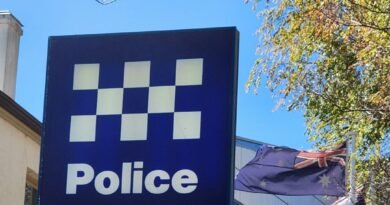37 Mayors Advocate for Energy Companies to Contribute to Climate Change Levies
A call for an additional $10 billion in tax has been endorsed by a group primarily consisting of Green and independent councillors nationwide.
A collective of Australian mayors and councillors are urging the federal government to levy an extra $10 billion annually from petroleum companies to combat climate change.
The letter, signed by 37 leaders, features independent mayors and councillors, as well as numerous Greens local government figures.
The mayors are advocating for revisions to the Petroleum Resources Rent Tax (PRRT) to generate an additional $10 billion yearly to assist local governments in funding climate mitigation initiatives.
As per the proposed legislation, the government has the potential to restrict taxable income deductions to 90 percent.
During a submission to the inquiry in February, major ASX-listed oil and gas producer Woodside cautioned against further alterations to the tax system.
Understanding Petroleum Resource Rent Tax (PRRT)
The PRRT is imposed on profits from the sale of marketable petroleum commodities.
These commodities comprise crude oil, gas, condensate, liquefied petroleum gas, ethane, and shale oil.
According to Woodside, being the largest contributor to PRRT, the company has remitted over $18 billion since 2011, as mentioned in its submission.
Purpose of the Letter
The correspondence from local government leaders underscores the challenges they face due to climate change.
“Nevertheless, local governments possess the least resources to manage the escalating costs of tackling climate-related impacts, like maintaining infrastructure and services post-climatic disasters.”
Signatories of the piece, published across various newspapers, include City of Sydney Lord Mayor Clover Moore, Greens Randwick City Council Mayor Philipa Veitch, Yarra City Council Greens Mayor Edward Crossland, and Merri-bek City Council Greens Mayor Adam Pulford.
Sydney Lord Mayor Clover Moore asserted that “we are experiencing a climate crisis” spurred by “the combustion of fossil fuels.”
She mentioned that residents in the City of Sydney are “vulnerable to climate change” due to “extreme weather events like heatwaves, severe storms, flooding, and the ramifications of bushfires, including poor air quality and transportation disruptions.”
“We have had to construct resilient infrastructure to combat climate change: planting 16,000 trees for shade; constructing a $140 million drain to alleviate flooding in Green Square; and investing in mobile cooling facilities for our most at-risk population.”
Proposed Measures
The PRRT functions as a levy on energy corporations drawing oil and gas resources within Australia.
Chief Economist at Australia Institute, Greg Jericho, emphasized that slight amendments in the government’s 90 percent cap would yield “in excess of $18 billion” in upcoming estimates.
He noted that this revenue could be allocated towards essential public amenities, affordable housing, and renewable energy sources.
Mr. Jericho remarked that the government’s strategy overlooks the PRRT.
“Now is the time to ensure our taxation system ensures a fair stake of oil and gas profits for all Australians,” he suggested.
“Budgets necessitate decisions, and there are uncomplicated avenues for the government to reform the PRRT to ensure that oil and gas companies contribute a more equitable portion of their profits and benefit all Australians.”
Woodside’s Caution Against Tax Hikes
Nonetheless, major oil and gas manufacturer Woodside contended that the PPRT continues to operate “as intended.”
The company cautioned against any further modifications to the PPRT in its submission.
“In concurrence with the Callaghan Review outcomes, the PRRT furnishes a just return to the community for the extraction of petroleum resources without impeding investments,” Woodside stated in its submission.
The company Hihglighted that even when project investors do not profit, governments still gain returns.
“Our tax contributions have displayed that when Woodside excels, state and federal governments also reap significant benefits,” the company explained.
The ASX-listed corporation added that with the PRRT amendments, it anticipates an increase in tax payments over future estimations.
It warned that further adjustments could result in “unintended consequences,” affecting substantial investments and potentially leading to “asset devaluation or financial uncertainty in other sectors, such as renewable energy.”





